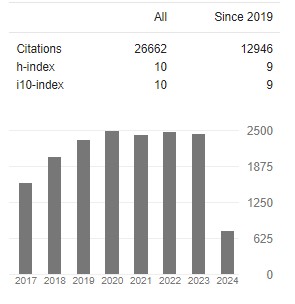Combating Marginalization and Exclusion through Agricultural Extension
Abstract
Samson Olayemi Sennuga, Shedrack A. Ujoyi, Osho-Lagunju Bankole, Mary E. Iheonu, Funso O. Alabuja, Timipre J. Preyor and Emeka F. Okpala
Rural areas in the majority of developing nations are characterized by poverty, geographic isolation, and inadequate access to agricultural workers, education, health, transportation, communication, and other amenities. The livelihood activities of rural people depend on agricultural productivity and the related agricultural extension services. Therefore, rural communities and marginalized groups need access to information on the availability of productive services, cutting-edge technologies, early warn- ing systems for drought (as well as pests and diseases), credit, and market prices. However, this paper examines a few ways to agricultural extension and advisory services and focuses in particular on the efficacy of participatory action research in exten- sion delivery procedures for reaching rural women, men, and isolated people equally. It was noted that, among other methods, participatory action research is one that can be used to combat marginalization and exclusion. However, very little has been ac- complished in terms of consistently taking a gender viewpoint into account while offering agricultural advising services. In order to avoid exclusion, significant work still needs to be done to include everyone in extension delivery services. This article makes the recommendation that, in order to close the gender and marginalization disparities in access to agricultural advisory services, new strategies based on a gender equitable approach to rural service delivery be put into effect at the farmer, provider, and policy levels.




